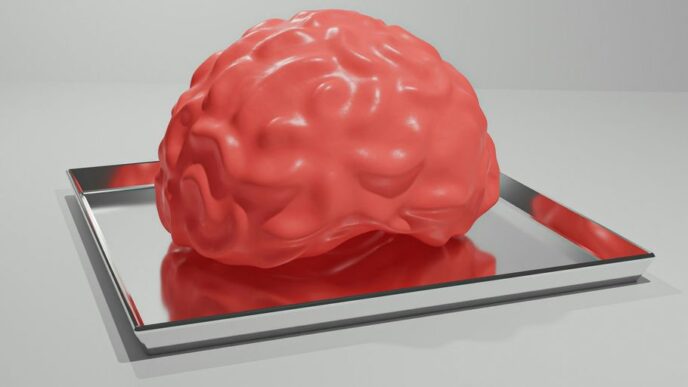Artificial intelligence (AI) is increasingly prevalent in our daily lives, offering efficient solutions across various industries. The field of maternal healthcare and parenting is no exception, as AI is being utilized to provide personalized care, monitor fetal health, and assist with childcare. However, ethical considerations must be carefully examined before fully implementing AI in these areas. In this article, we will explore the ethical implications surrounding the use of artificial intelligence in maternal healthcare and parenting.
Understanding Artificial Intelligence
Artificial intelligence refers to the development of computer systems capable of performing tasks traditionally requiring human intelligence. AI employs algorithms and statistical models to analyze vast amounts of data and make predictions or decisions based on this analysis.
Types of AI include machine learning (ML) and deep learning. Machine learning involves training systems using extensive datasets to enhance performance through experience, while deep learning uses neural networks inspired by the human brain to process information in layers and extract patterns.
AI applications range from customer service chatbots to self-driving cars. In maternal healthcare and parenting, AI is employed to provide personalized care through virtual assistants or chatbots equipped with medical knowledge. It is also used to monitor fetal health by analyzing data from wearable devices or ultrasound scans.
While AI has the potential to revolutionize maternal healthcare and parenting by offering more efficient care solutions, it is crucial to address the ethical implications associated with its implementation.
AI in Maternal Healthcare and Parenting
Artificial intelligence is revolutionizing the realm of maternal healthcare and parenting. Notably, AI is employed in monitoring fetal development during pregnancy. AI-powered ultrasound machines can detect abnormalities at an early stage, enabling timely intervention by doctors.
AI algorithms also assist physicians in predicting preterm births by analyzing data from electronic health records and wearable devices. This allows doctors to identify risk factors and take preventive measures to ensure the health of both mother and baby.
AI contributes to improving postpartum care as well. Chatbots powered by natural language processing technology provide personalized advice to new mothers on breastfeeding, sleep schedules, and other common concerns.
Moreover, AI-enabled home monitoring systems offer parents peace of mind by detecting potential issues such as sudden infant death syndrome (SIDS). These systems track an infant’s breathing patterns using sensors and alert parents in case of irregularities.
The integration of artificial intelligence into maternal healthcare and parenting presents exciting possibilities for enhancing outcomes for both mothers and infants. As technology advances, further innovative AI applications can be expected in these fields.
Ethical Considerations of AI in Maternal Healthcare and Parenting
The implementation of AI in maternal healthcare and parenting raises ethical concerns. One significant issue involves the potential loss of human touch in these sensitive areas. AI systems lack empathy and emotional intelligence, which are inherent to humans. As a result, they may struggle to fully comprehend or address a patient’s needs or emotions, leading to feelings of neglect or isolation, particularly when support is crucial.
Data privacy is another concern when employing AI in maternal healthcare and parenting. The significant amount of personal information generated by these technologies poses a risk of unauthorized access. Recent data breaches in other industries have highlighted the severe consequences individuals face when their private information is exposed.
Excessive reliance on AI may also lead to medical decisions being made without adequate consideration for individual circumstances and nuances. This impersonal approach could result in unfavorable outcomes for patients who would benefit from personalized care plans tailored to their specific needs.
While AI offers potential benefits for improving maternal healthcare and parenting practices, it is important to acknowledge and address the legitimate ethical concerns associated with its use. Careful consideration must be given before implementing such technologies to ensure they complement, rather than replace, human interactions and decision-making processes in these critical fields.
Ethical considerations surrounding the implementation of AI in maternal healthcare and parenting require a closer examination. One notable concern pertains to the potential loss of the human touch in these sensitive areas. AI systems inherently lack empathy and emotional intelligence, which are essential for understanding and addressing a patient’s needs or emotions. This limitation may lead to patients feeling neglected or isolated, particularly during times when emotional support is crucial.
Another significant ethical concern is data privacy. The utilization of AI in maternal healthcare and parenting generates a substantial amount of personal information, posing a risk of unauthorized access. Recent incidents of data breaches in various industries serve as stark reminders of the severe consequences individuals face when their private information is exposed. Protecting the confidentiality and security of patient data is imperative when employing AI technologies.
Excessive reliance on AI can also raise ethical considerations. The impersonal nature of AI may result in medical decisions being made without adequate consideration for individual circumstances and nuances. This standardized approach could lead to unfavorable outcomes for patients who would benefit from personalized care plans tailored to their specific needs. It is crucial to strike a balance between the benefits of AI and the need for human involvement, ensuring that decisions are made with careful consideration of each patient’s unique situation.
While AI holds significant potential for enhancing maternal healthcare and parenting practices, it is crucial to address the legitimate ethical concerns associated with its use. Implementing such technologies requires careful consideration to ensure that they complement, rather than replace, human interactions and decision-making processes in these critical fields. Ethical guidelines, transparency, and accountability should be central to the development and deployment of AI systems, promoting responsible and ethical use that prioritizes the well-being and autonomy of patients and families.
Conclusion
Artificial intelligence holds promise for enhancing maternal healthcare and parenting. However, ethical considerations must be carefully evaluated to ensure its responsible implementation. While AI can offer valuable insights and benefits, it is crucial to address concerns regarding privacy, autonomy, and bias. Thoughtful and responsible integration of AI into maternal healthcare and parenting is essential.













